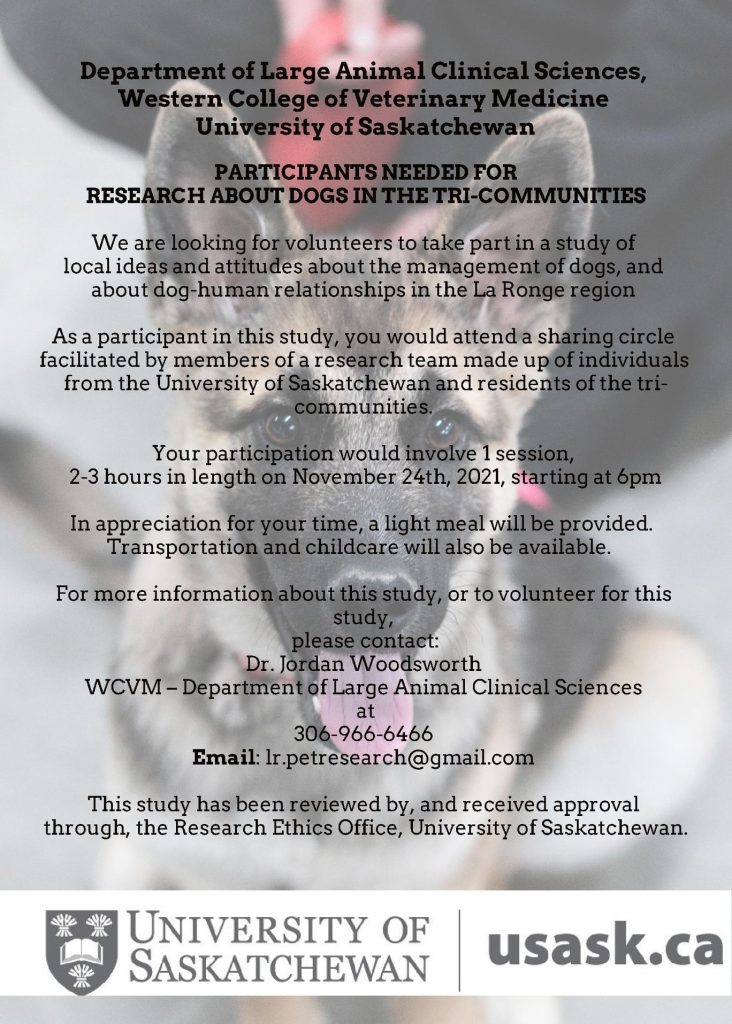La Ronge, Air Ronge and the Lac La Ronge Indian band are a part of a University of Saskatchewan study on community dog management in communities without regular access to vets.
The study, led by Western College of Veterinary Medicine small animal vet Jordan Woodsworth, hopes to help these communities by finding their strengths in dog management and where improvements are needed.
Woodsworth said she chose the La Ronge region to focus the study on because of her familiarity with the area.
“Having worked in the community providing vet care for the last eight years or so, I’ve noticed some of the gaps in terms of what’s missing for folks in the area and I know that this is not a unique experience either,” she said. “ A lot of communities in our province and across Canada experience similar barriers to accessing veterinary care.”
Woodsworth said this study can help communities prioritize the improvements needed.
“So, trying to figure out what some of those barriers are but also how people manage dogs in the absence of that care I think is really important because what that can do for us is it can allow us to identify what are some of the existing strengths that communities already have in managing dogs and what are some of the urgent issues for communities to have solved.”
Focusing the study in a region with a predominantly Indigenous population, and hoping to help all communities, Woodsworth said they were sure to gather Indigenous perspectives on the topic as well.
“The goal with this has been to really try and (to), as much as is possible with our Indigenous team members and with our Elders who are helping us with the project, be able to incorporate Indigenous worldviews and Indigenous traditions around dogs and things like that, to get an idea of what’s going on, but also what some of the value systems are around dogs.”

Tri-community members are invited to join a sharing circle on Nov. 24 at the JRMCC to give their own ideas on the subject of community dog management and to hear what the research team has already found in their study.
